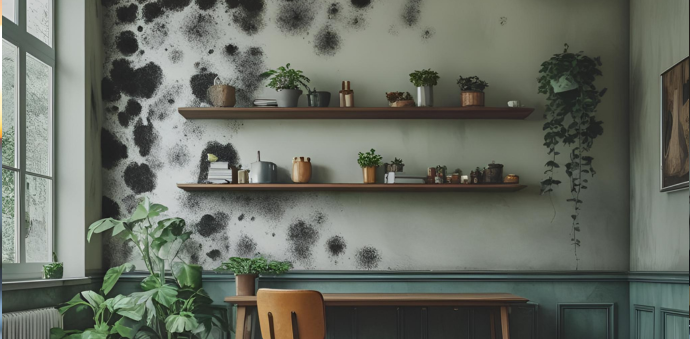Is My Landlord Responsible for Mold? What Tenants Need to Know
Experiencing mold in your rental home can be alarming and raise concerns about your health and living conditions. You're likely wondering, "Is my landlord responsible for mold?" The answer is often yes, as landlords generally have a significant responsibility for preventing and addressing mold issues, but tenants also play a role in prevention.
Landlord's Responsibilities Regarding Mold
Landlords are typically responsible for providing and maintaining a habitable rental property, which includes keeping it free from environmental hazards like mold. This responsibility is part of the "implied warranty of habitability," meaning landlords must provide housing free from health or safety hazards.
Key landlord responsibilities include:
- Preventive Measures: Landlords should conduct thorough inspections, including mold inspections, before a tenant moves in, covering areas prone to moisture like wall paneling, flooring, and bathrooms.
- Prompt Response to Mold Issues: Landlords must promptly respond to maintenance and repair requests, including those related to mold. If a tenant reports mold, the landlord should arrange an inspection to determine the cause and ensure repairs are made. Failure to address a tenant's repair request in a timely manner can shift liability for mold growth to the landlord.
- Addressing Causes of Mold: Landlords are responsible for fixing structural faults that cause mold, such as leaky roofs, broken pipes, faulty heating systems, or issues with guttering and internal plumbing. They may also be responsible for ensuring proper ventilation systems are in place.
- Mold Remediation Costs: Generally, the landlord must pay for mold removal, especially if it resulted from a maintenance issue or lack thereof. Because mold can be a health hazard and make a home unlivable, landlords are responsible for restoring the property to a livable state.
- Disclosure Requirements: While there are no federal laws on mold disclosure, some states (like California and Colorado) and cities (like San Francisco and New York) require landlords to disclose the presence of mold. Some jurisdictions also require landlords to notify tenants about health hazards associated with mold exposure.
Tenant's Role in Mold Prevention
While landlords bear significant responsibility, tenants also have a shared responsibility in preventing mold growth. This includes:
- Reporting Mold Promptly: Tenants should alert their landlord as soon as they spot mold, describing its location and any damage.
- Maintaining the Property: Tenants can contribute to mold prevention by keeping the property clean, ensuring proper ventilation, and managing humidity levels. If mold occurs due to a tenant's actions, such as neglecting humidity levels or failing to clean regularly, the landlord may charge the tenant for remediation costs.
What to Do If You Find Mold
If you discover mold in your rental, follow these steps:
- Document everything. Take photos and videos of the mold, thoroughly record a timeline of when you noticed it, and keep copies of all correspondence and maintenance requests.
- Notify your landlord in writing. Send a detailed written request describing the mold problem and asking for repairs. Keep a copy for your records.
- Allow time for response. Landlords typically have a reasonable timeframe (e.g., 14-30 days, depending on local laws) to respond and arrange for inspection and repairs.
- Seek professional advice. If you have concerns about mold levels, the CDC recommends consulting professional remediators to determine the level of mold spores.
What if Your Landlord Doesn't Respond?
If your landlord fails to respond or address the mold within a reasonable timeframe, you may have further options, such as contacting your local authority, who could force the issue. It's crucial to understand your local laws to know who is responsible for mold and what your rights are.
Get Expert Legal Help
Dealing with mold can be overwhelming, especially when your landlord isn't responsive. Understanding your rights and responsibilities is crucial.
Contact us today for a free consultation. Our tenant rights team can help you understand your specific situation, guide you through the process of documenting the mold, communicating with your landlord, and exploring your legal options to ensure your home is safe and healthy.
Don't let mold jeopardize your health and peace of mind. Reach out now for clear answers and support.
Read: Can I break a lease for landlord neglect?
